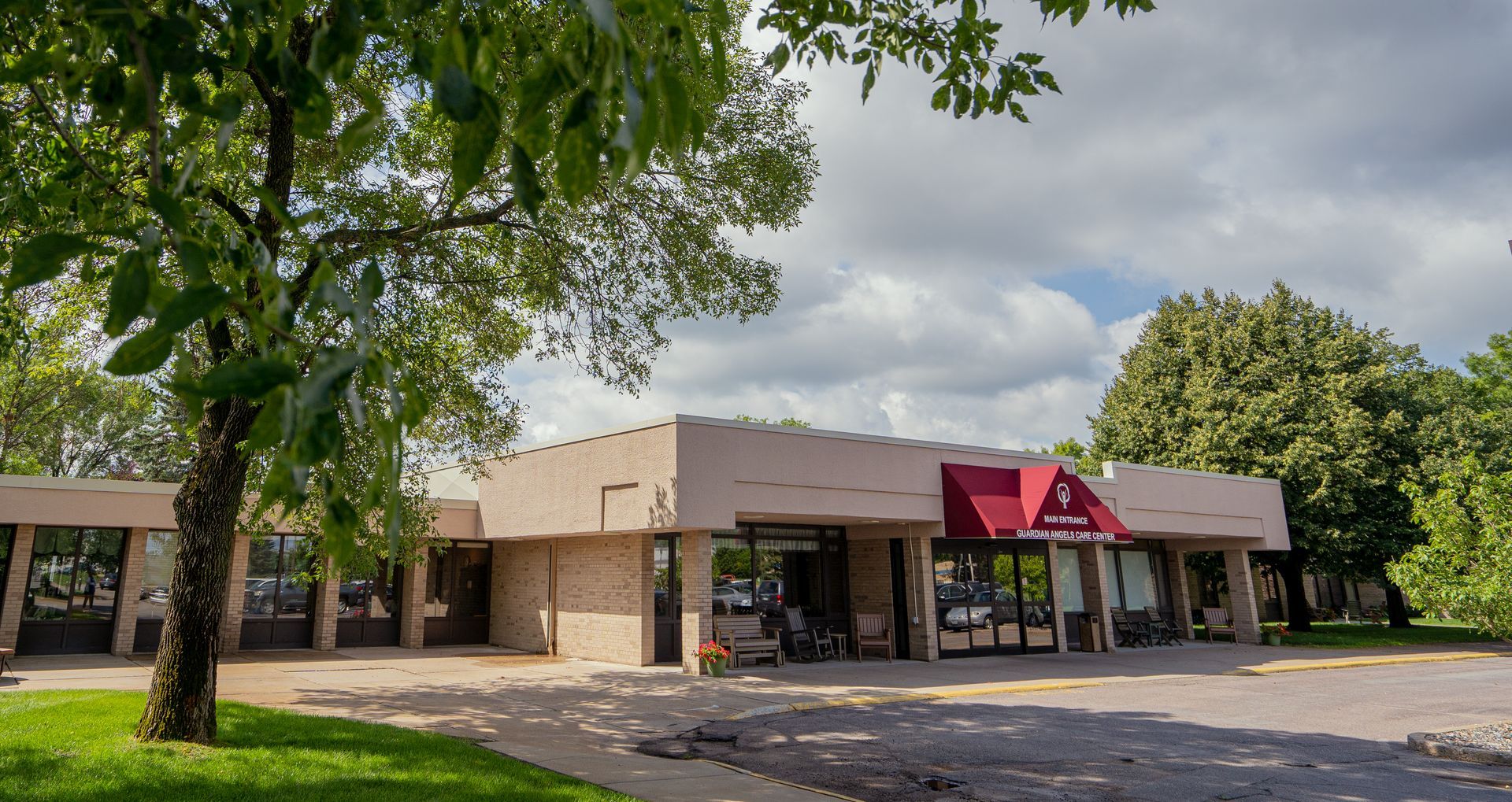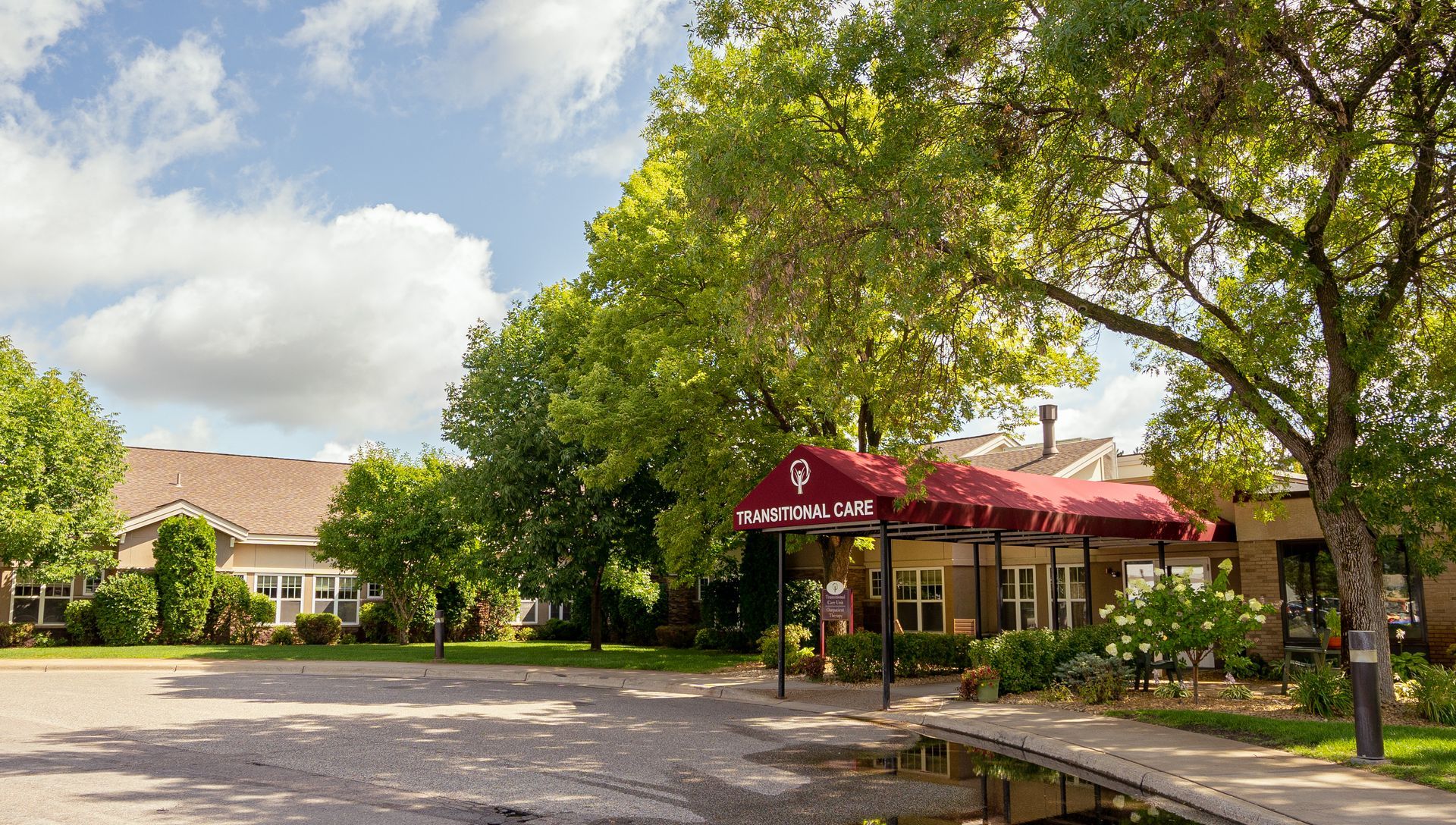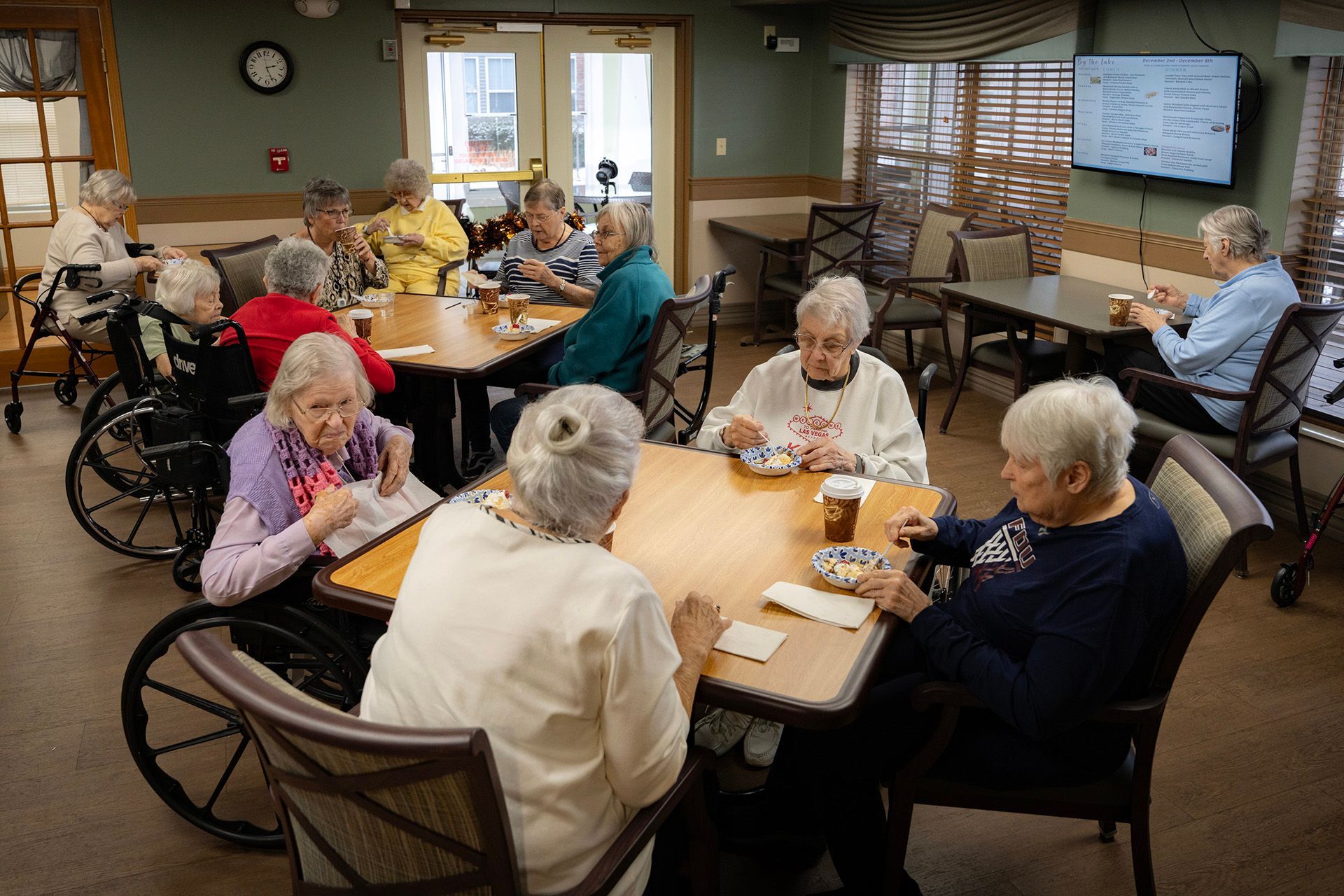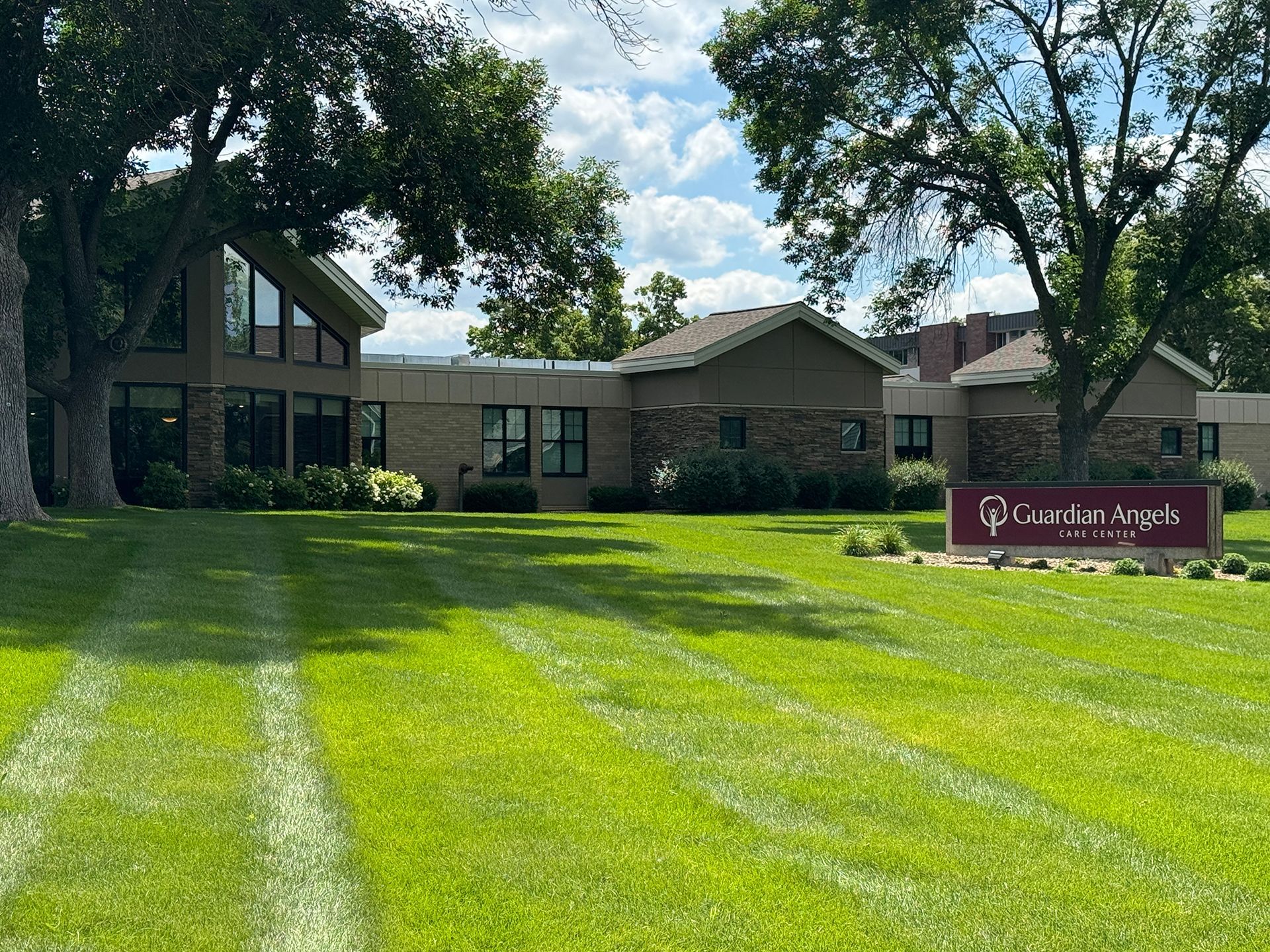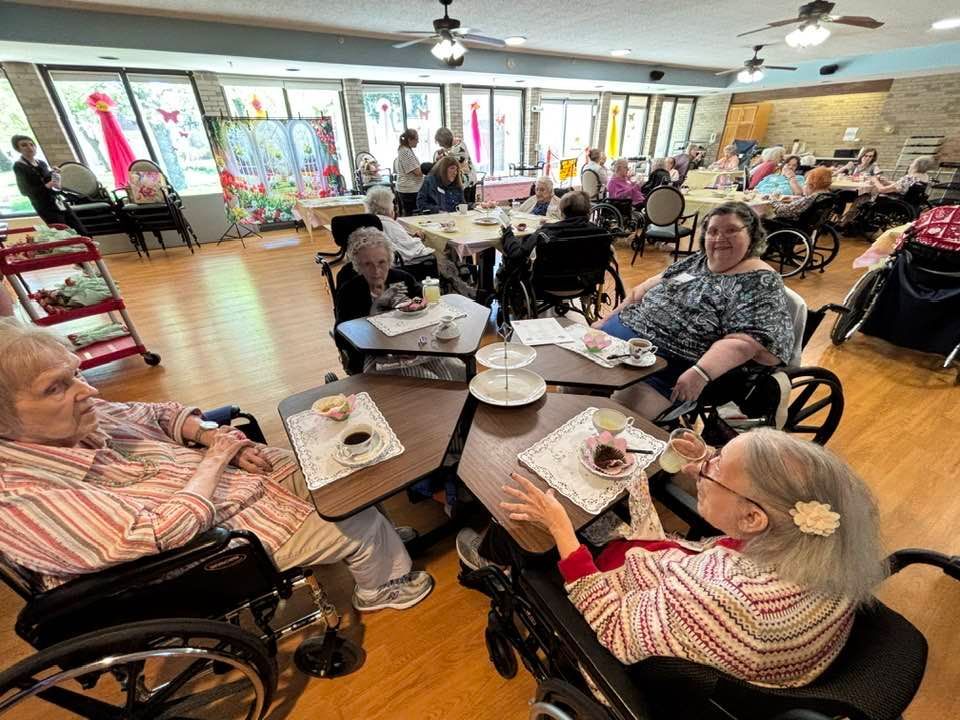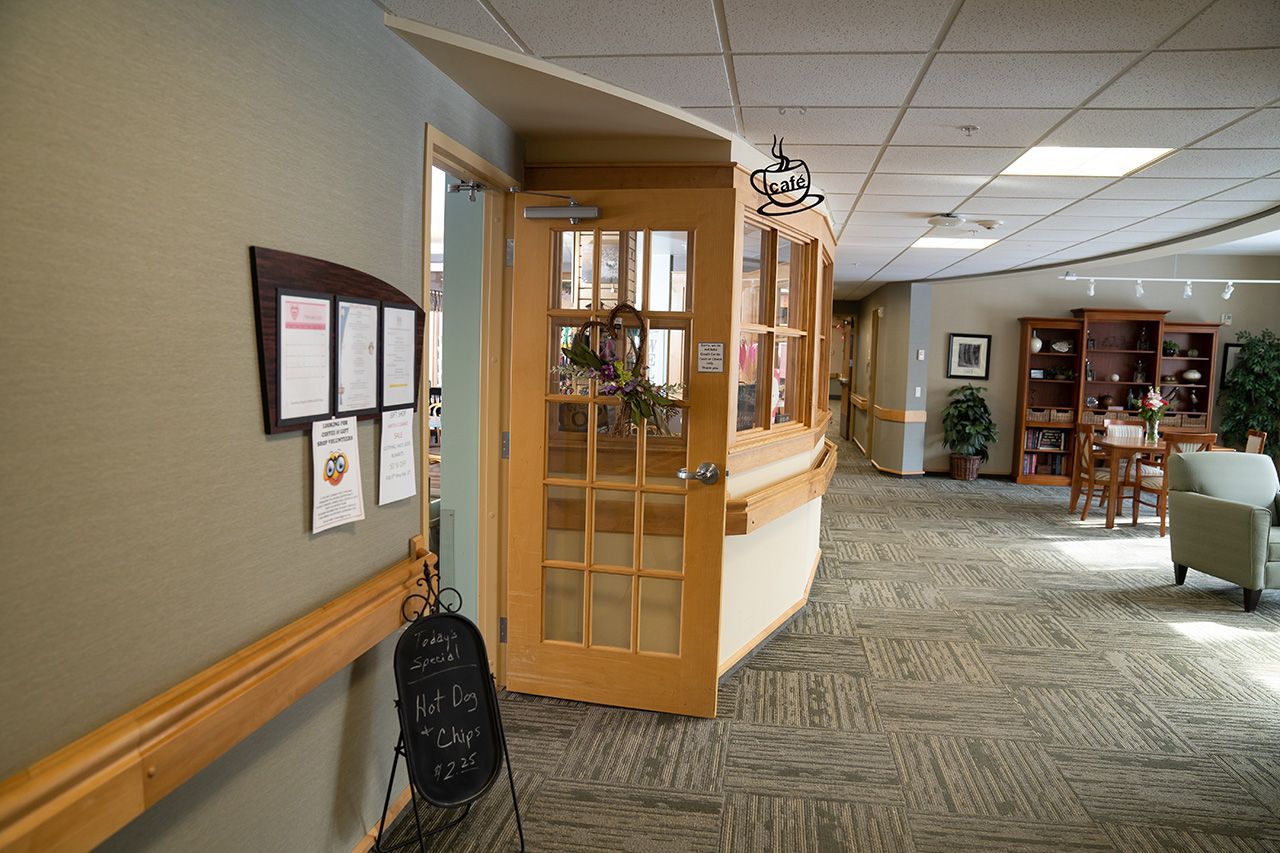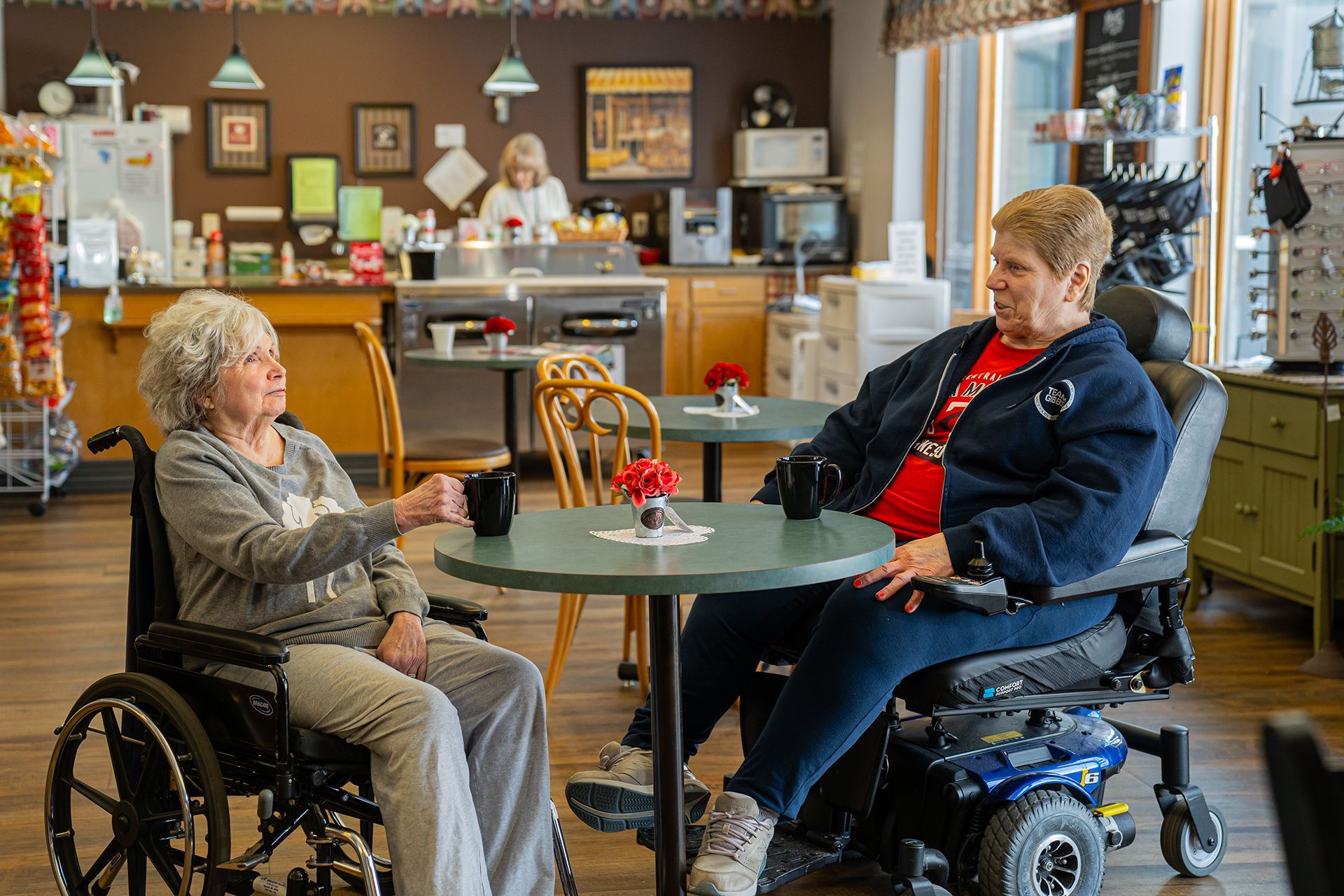Recover Quickly in Our Transitional Care Unit
Transitional care management helps you bridge the gap between a hospital stay and home with personalized restorative nursing care and therapy in an inpatient setting.
Located at the Guardian Angels Care Center in Elk River, MN, the TCU is a comfortable place to stay while recovering from joint replacement or repair, cardiac events, pneumonia, a stroke, and other events. Most stays in the TCU are 30 days or fewer, and you’ll enjoy delicious meals and a private living space while you’re here.
Transitional Care Services
Our goal at the Transitional Care Unit is to help you recover quickly and comfortably so that you can return home as soon as possible. Our specialized nurses and therapists will guide you through a personalized recovery plan. You are welcome to stay by the day and return home as soon as you are ready.
24-hour skilled & specialized nursing services
Physical, occupational, & speech therapy services
Individualized nutrition plans
Social, recreational, & education programs
pastoral care & spiritual services to accommodate all faiths
Transitional Care
At the Guardian Angels Care Center, our Rehabilitation Team consists of physical therapists, occupational therapists, speech therapists, and more. We specialize in helping residents recover comfortably from injuries, acute illnesses, surgeries, and hospitalizations.
Our Care Services
- Joint Replacement
- Cardiac and Stroke Recovery
- Respiratory Illness
- Balance and Strengthening
Community Features
We are here to make your stay enjoyable. You are welcome to all the amenities of the Guardian Angels Care Center during your stay, including a coffee shop, salon, chapel services, and more. Our community also provides an outdoor putting green, gazebo, and walking paths to enjoy the fresh air and sunshine.
Meet the Rehab Therapy Team
Our expert clinical and rehab team is here to help you recover quickly and confidently after a hospital stay. With on-site therapy and skilled clinical support, we bridge the gap between hospital and home—managing your rehabilitation and medications so you can heal faster, regain strength, and return home sooner. Place this before the community features
Your Recovery Starts Here
Expert care, personalized therapy, and a supportive environment to help you regain strength and return home with confidence.
Frequently Asked Questions
What is Transitional Care?
Transitional Care, sometimes referred to as short-term rehabilitation, is a temporary type of care focused on recovery and rehabilitation after a hospital stay or major health event, such as surgery or a stroke.
Benefits of Transitional Care:
- Rehabilitation Services: Physical therapy, occupational therapy, and speech therapy to regain strength and independence.
- Smooth Transition: A bridge between hospital care and returning home.
- Health Monitoring: Close monitoring of health conditions to prevent complications or readmissions.
Example for Families:
Your father has just had hip replacement surgery and is not yet able to safely return home. Transitional Care offers intensive physical therapy and support so he can recover fully and regain his mobility before resuming his daily routine.
How is Transitional Care Different from Skilled Nursing Care?
Both involve professional, medical oversight, but their intent and duration vary.
- Transitional Care: Short-term and recovery-focused, often beginning after a hospital discharge. The goal is to rehabilitate patients to return to their prior level of independence.
- Skilled Nursing Care: Provided on a long-term basis for individuals with serious medical conditions needing daily health monitoring or treatments (e.g., wound care, IV therapy).
Example for Families:
Your grandmother recently had a stroke. In Transitional Care, she would focus on regaining speech and motor skills. If she develops a condition requiring ongoing skilled medical attention, such as wound care or managing a feeding tube, Skilled Nursing Care becomes more appropriate.
What is the Admission Process for Long-Term or Transitional Care?
The process typically involves:
- Initial Assessment: Our team conducts an evaluation to determine your loved one’s needs.
- Care Plan Development: Customized plans are created to address medical, social, and emotional requirements.
- Admission and Orientation: Support to help your loved one settle into their new environment.
How Does Insurance Cover These Care Options?
Coverage varies by care type and individual insurance plans:
- Long-Term Care: Often covered by Long-Term Care Insurance or paid out-of-pocket; limited Medicaid coverage may be available in some cases.
- Transitional Care: Usually covered by Medicare or private insurance, as it’s tied to recovery and short-term medical needs.
How Will I Know My Loved One is Receiving Quality Care?
At our Care Center, we ensure quality through:
- Licensed professionals providing care.
- Regular family updates and involvement in care planning.
- Resident-centered focus to meet individual preferences and needs.



